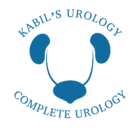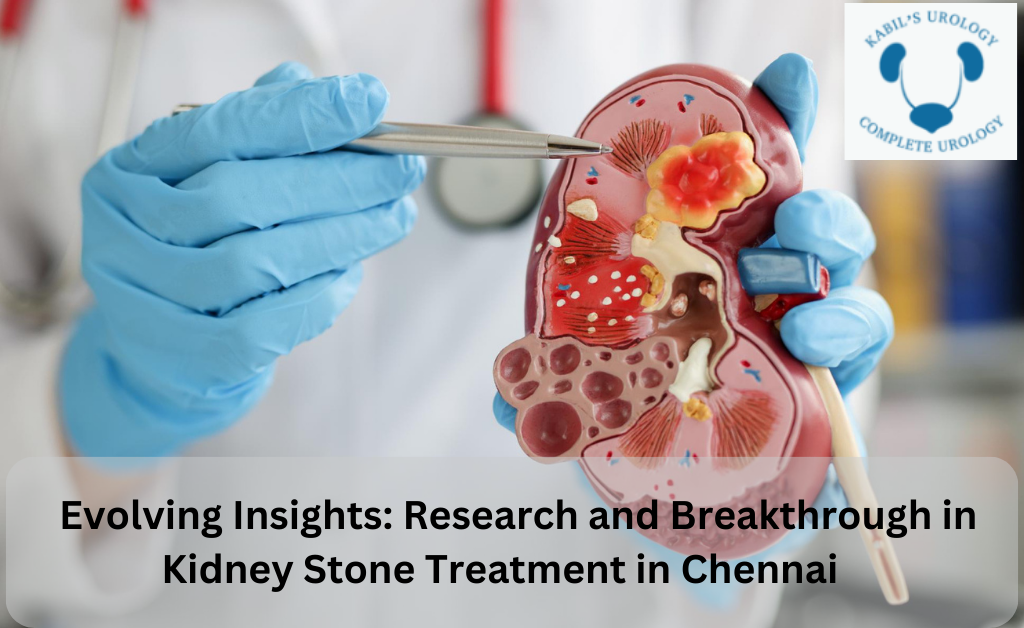Introduction
Millions of individuals worldwide are nowadays affected by a prevalent urological condition named Kidney stones,which is medically otherwise termed as nephrolithiasis or renal calculi. If this condition is left untreated, these mineral buildups in the kidneys can be excruciatingly painful and may result in a number of consequences.
India’s thriving metropolis of Chennai has been at the forefront of research and innovation in kidney stone treatment procedure. Complete Urology examines the advancing knowledge, research and innovations in Kidney Stone Treatment in Chennai in this extensive post, covering a wide range of topics in this area.
Advancements in Diagnosis
Accurate diagnosis
Effective treatment starts with the accurate diagnosis of the kidney stone. The medical institutions in the city have adopted cutting-edge testing methods to guarantee accurate stone detection. Important diagnostic advancements include:
CT Scans: High-resolution ultrasound and computed tomography scans are non-invasive imaging methods that provide comprehensive information on the size, composition and location of the kidney stones in patients.
3D printing: To help surgeons design minimally invasive operations, 3D printing technology is sometimes used to generate a physical duplicate of the kidney and the stone.
Innovative Approaches to Treatment
The medical community in Chennai has taken the initiative to create and utilize cutting-edge kidney stone treatment methods. These methods seek to lessen patient discomfort and enhance therapeutic results.
Shock Wave Lithotripsy: Smaller stones are still frequently treated with SWL. The stones are broken up into smaller pieces using powerful shock waves, which can subsequently be naturally eliminated by urination.
Lithotripsy with a laser: Laser lithotripsy has grown in favor for treating bigger stones or those that are resistant to SWL. The stones are broken up into manageable pieces by the laser energy used in this minimally invasive process, making them easy to remove or pass naturally.
Ureteroscopy: To reach the stone, ureteroscopy entails inserting a small, flexible tube with a camera via the urethra and bladder. For precision stone removal, Chennai’s medical facilities have been utilizing cutting-edge, high-definition cameras and tiny surgical instruments.
PCNL: Percutaneous Nephrolithotomy
PCNL is a preferred solution when dealing with large or complicated stones. Using a nephroscope to directly access and remove the kidney stone requires creating a small incision in the back.
Instrument Miniaturisation
The development and use of miniature surgical devices, which allow for less invasive treatments and quicker recoveries, has been spearheaded by urologists in Chennai.
Laser Technology Advances
In terms of kidney stone treatment, laser technology has revolutionized the field. Chennai has seen a number of innovations in this field:
The holmium laser: The precision and efficiency of laser lithotripsy have substantially increased with the use of the holmium laser. With its exceptional accuracy, this laser can target stones with little chance of damaging nearby tissues. It can also break up stones with different components, such as calcium oxalate, uric acid, and cystine stones.
Laser Flexible Ureteroscopy: The use of flexible ureteroscopy in conjunction with laser lithotripsy was invented by urologists in Chennai. This method provides additional flexibility in stone management by allowing for the treatment of stones that are found in the ureter and kidney.
Research and Developments in the Study of Stone Composition
To customize treatment plans and avoid stone recurrence, it is essential to understand the makeup of kidney stones. The medical and scientific facilities in Chennai have advanced significantly in this field:
Higher-level stone analysis: For a precise examination of stone composition, sophisticated methods like X-ray crystallography and Fourier-transform infrared spectroscopy are used. With the use of this knowledge, clinicians may choose the best treatments and nutritional suggestions for their patients.
Metabolic Assessment: Urologists in Chennai are emphasizing metabolic assessments for kidney stone patients more and more. The patient’s metabolic profile must be evaluated, taking into account elements including urine pH, calcium levels, and citrate excretion. Customized preventive interventions can be suggested by determining the underlying metabolic problems.
Recommendations for diet: The significance of dietary changes in reducing stone recurrence has been shown by research conducted in Chennai. In order to reduce the risk of stone development, patients receive individualized dietary advice that takes into account the makeup of their stones and their metabolic profile.
New Pharmacological Techniques
The medical community in Chennai has been actively investigating pharmaceutical therapies for kidney stones in addition to surgical and less invasive procedures:
Blockers for alpha: The use of alpha blockers, which are often used to treat problems including high blood pressure and benign prostatic hyperplasia (BPH), to help ureteral stones transit has shown some potential. The mechanism by which these drugs might relax the muscles in the urinary system and make it simpler for stones to move has been better understood thanks to research done in Chennai.
Thiadiazoles as Diuretics: It has been researched if thiazide diuretics can lessen the likelihood that certain kidney stone types would return. Studies from Chennai have looked at how these drugs affect urine calcium levels to avoid the production of calcium-based stones.
Care and Education Focused on the Patient
Healthcare facilities in Chennai place a high priority on patient-centered care and education as essential elements of kidney stone treatment:
Counseling for patients: Comprehensive counseling regarding the illness, available treatments, and lifestyle changes is given to patients. This method gives people the power to take an active role in their treatment and make wise choices.
Advisory Groups: Chennai has seen the emergence of kidney stone support groups that help patients feel a feeling of belonging. These groups provide a forum for exchanging knowledge on stone prevention as well as experiences, coping mechanisms, and experiences.
Prevention and modifying one’s lifestyle
The urology community in Chennai is heavily focused on preventing kidney stones. Initiatives in research and education stress the significance of lifestyle changes:
Hydration: One essential component of preventing stones is adequate hydration. Patients in Chennai are advised by their medical professionals to drink enough water to prevent the formation of stones.
Dietary Advice: Dietary advice that is specifically tailored to a person takes into account their metabolic profile and stone composition. Experts from Chennai advise patients to consume more foods high in citrate and less foods high in sodium and oxalate.
Managing medication: Patients with recurrent stones are given advice on how to manage their medications, which may include thiazide diuretics or potassium citrate supplements.
Collaborations in Research and Clinical Trials
The significance of Kidney Stone Treatment in Chennai extends to its participation in joint research projects and clinical trials:

International Partnerships: International partners and Chennai’s research institutions work together to share information and experience in the field of kidney stone research. These partnerships make it easier for people to share ideas and enhance healthcare globally.
Medical Research: In Chennai, clinical trials investigating novel drugs, procedures, and preventive measures are carried out. Patients can take part in cutting-edge studies that attempt to enhance kidney stone treatment outcomes.
Remote consultations and telemedicine
In Chennai’s kidney stone therapy in recent years, telemedicine and remote consultations have grown in significance:
Remote observation: Through telemedicine, patients can gain from remote monitoring of their health. This lessens the need for frequent in-person consultations and enables fast modifications to treatment plans.
Access to experts: Regardless of geographic limitations, telemedicine gives patients in Chennai and the surrounding areas access to professionals and experts in the treatment of kidney stones.
Directions and Challenges for the Future
Although Chennai has achieved outstanding progress in treating kidney stones, there are still a number of obstacles and chances to overcome:
Individualized medicine: The profession is shifting towards more individualized methods, with treatment strategies heavily influenced by genetic and metabolic profiling.
Accessibility and price: In Chennai and throughout India, it is still difficult to guarantee that cutting-edge kidney stone therapies and preventive measures are available to and affordable for all societal groups.
Novel Therapy Research: Research into cutting-edge treatments, like those based on nanotechnology and targeted drug delivery systems, has the potential to considerably enhance kidney stone treatment outcomes.
Educating the patient: The burden of kidney stones in Chennai and elsewhere must be reduced via ongoing patient education and awareness campaigns.
Conclusion
The relentless quest of excellence by urological doctors in Kidney Stone Treatment in Chennai has led to numerous advancements in diagnosis, therapy, research, and patient care.
The city’s urology community has incorporated cutting-edge technologies,ongoing research collaborations, clinical studies and fresh strategies to deliver effective, patient-centered care which as a result improves the quality of life for kidney stone patients.

